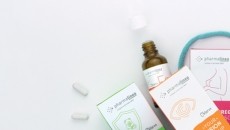Omega-3 from GM yeast “comparable to GRAS fish oil”: DuPont study

Results of a 90-day rat study with eicosapentaenoic acid (EPA)-rich oil produced from GM Yarrowia lipolytica yeast produced no adverse effects at doses up to 976 mg EPA per kilogram of body weight per day, according to findings published in Regulatory Toxicology and Pharmacology.
“Exposure to EPA oil produced no test substance-related effects on body weight or nutritional parameters, neurobehavioral parameters, clinical or ophthalmological observations, hematology or urinalysis parameters or microscopic pathology at any tested dose,” wrote researchers from DuPont, led by Susan MacKenzie.
“The safety profile of EPA oil was comparable to that of GRAS fish oil. These results support the use of EPA oil produced from yeast as a safe source for use in dietary supplements,” they added.
Fish oils from plants
The most common source of omega-3 in the human diet is fish, which is naturally rich in DHA (docosahexaenoic acid) and EPA, both of which have been well researched for their role in cardiovascular health.
Fears about dwindling fish stocks, however, coupled with the putative risk of pollutants from oily fish, have pushed some in academia and industry to investigate the extraction of omega-3 from alternative sources.
DHA extracted from non-GM microalgae is already on the market by Martek, as is plant-source alpha-linolenic acid (ALA), a shorter chain omega-3 that is less bioavailable for humans.
However, this has not stopped a widening of the search for alternatives. One such approach has been to utilize genetic engineering of plants to produce SDA (stearidonic acid), EPA and DHA, with biotech giants Monsanto, DuPont, and BASF reporting progress. Indeed, Monsanto teamed up with Solae in 2007 to commercialize the former’s soybean variety developed specially to be rich in SDA. The oil is being commercialized by Solae under the brand name Soymega, and GRAS status (generally recognised as safe) was attained in 2009.
On the other hand, BASF Plant Science, in collaboration with Rothamsted Research and the University of York in the UK, has inserted genes from micro-organisms such as Thallasiosira pseudonana into rapeseed to produce EPA-containing vegetable oil.
DuPont moves forward
The new study shows the progress of DuPont in this field, as it moves to establish the safety of its EPA-rich oil from yeast. MacKenzie and her co-workers administered doses of EPA-rich oil ranging from 98 to 976 milligrams of EPA per kg per day, or GRAS fish oil to rats for 90 days.
No effects were observed at the low doses, but at medium (488 mg EPA/kg/day) and high (976 mg EPA/kg/day) doses a reduction in total and non-HDL cholesterol levels was observed. A temporary and early reduction in HDL levels was also observed at the high dose EPA, but this was not maintained throughout 90 days, said the researchers.
“Exposure to EPA oil for 90 days produced no effects at 98 mg EPA/kg/day and no adverse effects at doses up to 976 mg EPA/kg/day,” report MacKenzie and her co-workers.
“All effects observed in the High EPA dose group were qualitatively and quantitatively comparable to those observed in the group exposed to a fish oil generally recognized as safe by the US FDA,” they added. .
Source: Regulatory Toxicology and Pharmacology
Published online ahead of print, doi: 10.1016/j.yrtph.2010.08.021
“Safety assessment of EPA-rich oil produced from yeast: Results of a 90-day subchronic toxicity study”
Authors: S.A. MacKenzie, L.A. Belcher, G.P. Sykes, S.R. Frame, P. Mukerji, P.J. Gillies













